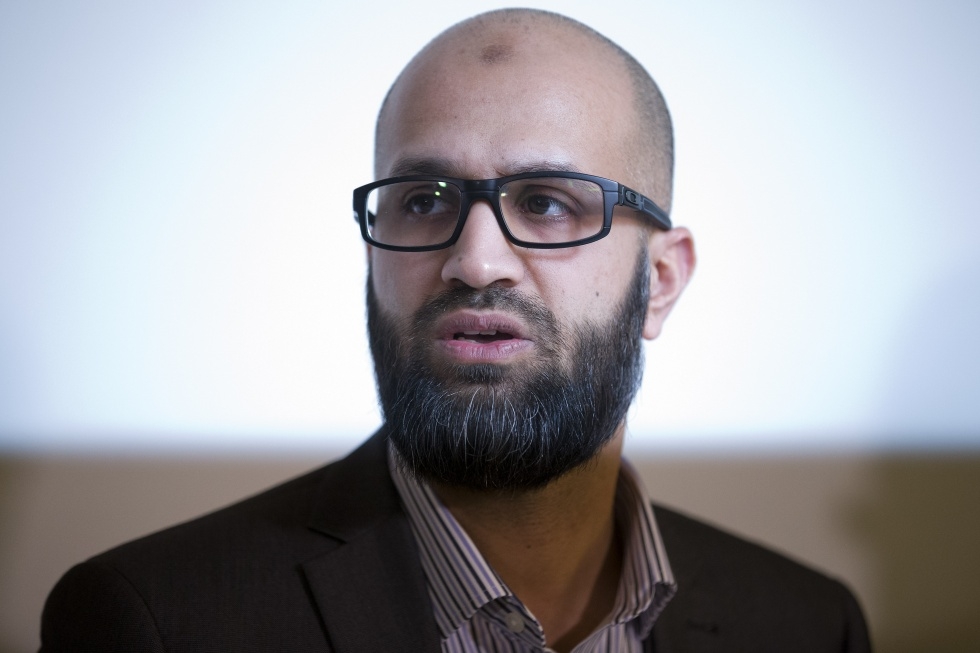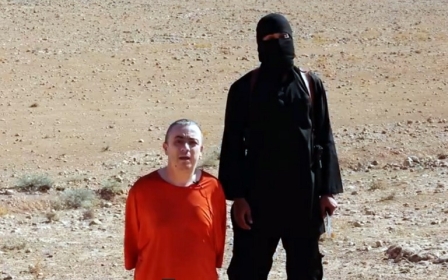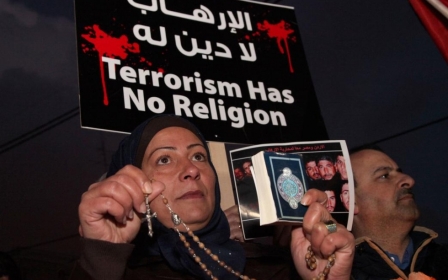'Jihadi John' case raises questions about UK counter-terrorism strategy

The identifying of “Jihadi John”, a masked militant who has beheaded and tortured hostages held by the Islamic State in Syria, as 26-year-old British national, Mohammed Emwazi, has ignited a debate about the young recruit’s life, identity and path to Islamist militancy.
Observers have pointed to Emwazi’s privileged upbringing – Emwazi came from a “well-to-do family,” growing up in West London and graduating from college with a degree in computer programming, according to the Washington Post – as proof that poverty did not fuel his radicalism.
Less attention has been paid to the alleged interactions between Emwazi and the British security services and how, if at all, these may have impacted on the young militant.
Emails exchanged between Emwazi and Asim Qureshi, director of CAGE, a group which primarily lobbies on behalf of detainees held on terrorism charges, suggest that, before he travelled to Syria in 2012, Emwazi had several encounters with British authorities.
In Amsterdam in 2009 an officer from MI5, Britain’s domestic security agency, tried to recruit Emwazi after accusing him and two others of trying to reach Somalia, where the militant group al-Shabab is based, according to emails he sent to Qureshi.
“Listen Mohammed: You’ve got the whole world in front of you; you’re 21 years old; you just finished Uni – why don’t you work for us?” Emwazi recalled an MI5 officer asking him in Amsterdam's airport in a June 2010 email he sent to Qureshi.
CAGE has been accused of sympathising with some of the foreign fighters it is regularly in contact with.
Qureshi, a graduate of the London School of Economics, has taken part in rallies by Islamist groups in the UK who call for “jihad” in Chechyna and Iraq.
He told Middle East Eye he had met with Emwazi in the fall of 2009 shortly after he returned to the UK to discuss what had happened.
“Mohammed was angry about the way he had been treated, he felt they (MI5) had bullied and disrespected him,” Qureshi said.
In 2010 counterterrorism officials in Britain detained Emwazi again – fingerprinting him and searching his belongings – and later preventing him from travelling to Kuwait, his birthplace, where he had landed a job working for a computer company.
“I had a job waiting for me and marriage to get started,” Emwazi wrote in a June 2010 e-mail to Qureshi. But now “I feel like a prisoner, only not in a cage, in London. A person imprisoned & controlled by security service men, stopping me from living my new life in my birthplace & country, Kuwait.”
Qureshi said he last heard from Emwazi in January 2012.
“Mohammed was harassed repeatedly by MI5 from the summer of 2010 until 2013. He told me he was once strangled by an officer at Heathrow airport during interrogation,” said Qureshi.
Qureshi said that Emwazi, who has been described by those who knew him as "polite with a penchant for wearing stylish clothes while adhering to the tenets of his Islamic faith," had used “every means possible" to try and change his personal situation.
"Suffocating domestic policies aimed at turning a person into an informant but which prevent a person from fulfilling their basic life needs would have left a lasting impression on Emwazi,” said Qureshi.
“When are we going to finally learn that when we treat people as if they're outsiders they will look for belonging elsewhere?”
Analysts have dismissed CAGE’s assertion that the security services had a role in Emwazi’s radicalisation.
“I think it's a bit rich that Jihadi John has decided to go to Syria and participate in this conflict because of some interaction with the security services,” Shiraz Maher, a senior fellow at the International Centre for the Study of Radicalisation and Political Violence, told the Telegraph. "As if he (Jihadi John) is resolved of all responsibility, as if he is not a salient individual capable of making his own decisions.”
Haras Rafiq, managing director of the anti-radicalisation think-tank the Quilliam Foundation, called the claim that Britain was in anyway to blame "rubbish."
“It's not the British or Kuwaitis fault. It is his fault and the people who radicalised him. Jihadi John is a cold-hearted killer,” he said.
Moazzam Begg, a British-Pakistani citizen and former Guantanamo Bay detainee, said that British security forces were not to blame but that their increasingly intrusive strategies had contributed to a “climate of fear and alienation” amongst Muslims in Britain.
“It’s not an excuse, it’s part of an explanation why this man must have felt greatly alienated," said Begg.
"Scores and scores have been harassed, stopped whenever they travel, approached by security services ... There are people who feel they are stuck, they have nowhere to turn to, it’s crucial we get this point across, some of us have had our lives completely destroyed."
Begg said the British government was still refusing to engage with the idea that British policies, foreign and domestic, might be influencing potential jihadists.
"When people get alienated, they feel unwelcome and afraid ... I feel that way all the time, I’ve been arrested, I’ve had my house turned upside down, I’ve been prosecuted and made to feel like I don’t belong here. If I was to leave tomorrow for Syria would it be right to say that the security services drove me away?”
New MEE newsletter: Jerusalem Dispatch
Sign up to get the latest insights and analysis on Israel-Palestine, alongside Turkey Unpacked and other MEE newsletters
Middle East Eye delivers independent and unrivalled coverage and analysis of the Middle East, North Africa and beyond. To learn more about republishing this content and the associated fees, please fill out this form. More about MEE can be found here.




